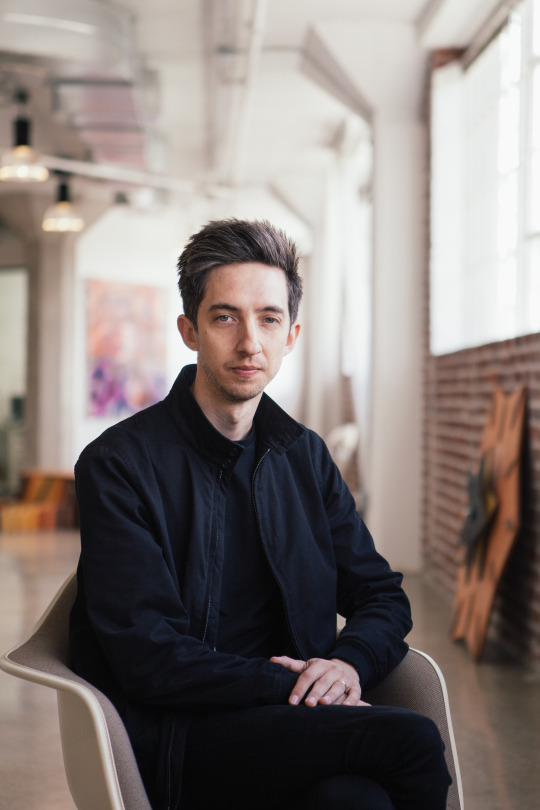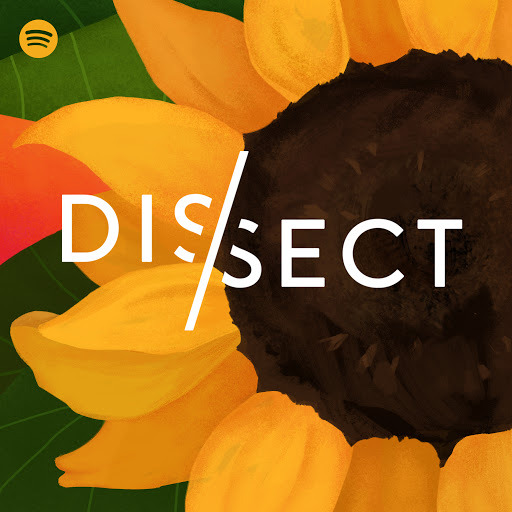'Dissect' Podcast Host Cole Cuchna on Taking a Critical Lens to Tyler, the Creator and Kanye's Sunday Service [Q&A]

Do you have lingering questions on the funk-driven thematic narratives surrounding Kendrick Lamar's masterpiece album To Pimp a Butterfly? Or are you still struggling with balancing Kanye West's genre-defining masterpiece My Beautiful Dark Twisted Fantasy and his public persona? Chances are you, as we all do, still have an itching question or two surrounding every move Frank Ocean has made throughout his enigmatic career. Well, then Dissect is exactly the podcast for you.
Hosted by Cole Cuchna, Dissect is every music nerd's dream come true. Each season of the hit podcast goes in-depth on one pivotal figure in music and their work - from Kendrick Lamar and To Pimp a Butterfly, Kanye West and My Beautiful Dark Twisted Fantasy, The Miseducation of Lauryn Hill, to the mythos of Frank Ocean. Simply put, you need to be listening to Dissect.
In his latest season, Cuchna takes an academic approach to one of hip-hop's most radical figures, Tyler, the Creator. In the midst of examining Tyler, the Creator's evolution as an artist and the themes of isolation and identity that surround his landmark album Flower Boy, we caught up with Cuchna to discuss everything from dissecting hip-hop's most pivotal figures to Kanye West's Sunday Service.
OTW: As a fellow music nerd, would love to know what was the turning point where you thought to yourself that spending hours on deep-diving into the intricacies of an album was how you most wanted to spend your free time?
Cuchna: It really stemmed from my experience studying composition in college. You'd get assigned papers and I came to really love researching a single piece of music, diving deep into the composer who wrote it, the time in history it was created – all of it. When I graduated, part of me really missed doing that, which is one of the reasons I created Dissect.
OTW: What is it about a particular artist or album that draws you to dissecting them and their work?
Cuchna: I try to find a nice balance between now and forever. In other words, something that represents our present day but also contains something universal and timeless about the human experience. For example, To Pimp a Butterfly is very much a story about the black experience in contemporary American society, but also a deeply personal story about a man coming of age, dealing with anxiety, self-doubt, which of course are universal struggles.
OTW: Would you say there was a hip-hop album or era that was integral in you falling in love with the genre?
Cuchna: Not in particular. I've loved hip-hop since I was a boy. My first CD was Warren G. And even though I've gotten into just about every genre of music there is, hip hop has been a constant for me, and I've loved to experience its evolution over these last 20 plus years.

OTW: From Kanye West, Kendrick Lamar, Frank Ocean, Lauryn Hill to now Tyler, the Creator, hip-hop clearly fascinates you. Do you think a season of Dissect will ever focus at an artist outside of the realm of hip-hop?
Cuchna: It's definitely a constant debate in my head. Like I said, all types of music and genres interest me, but I also like the idea of approaching hip-hop academically since it's somewhat rare.
OTW: Historically, hip-hop has not received the same academic weight as other genres. Why do you think this is?
Cuchna: Well, the genre is pretty young, and it always takes time for things to work itself into academia. Classical music still dominates academia, largely because there's so much established literature and repertoire that took hundreds of years to develop. I think you're starting to see a shift now, though. Artists like Kendrick Lamar, Jay-Z, and even Kanye West to some degree are starting to get academic attention, and my hope is that we build off each other's work and develop a literature that can grow exponentially.
OTW: What was it about Tyler, the Creator's Flower Boy that made you want to take a critical eye to it this season?
Cuchna: I was initially drawn to its production – the chord progressions, the jazz-inspired harmonies and the way Tyler uses his instruments orchestrally. I've been wanting to incorporate more music theory into the show so all that was attractive. Thematically, the album contains a well-executed narrative and a number of thought out symbols and themes. There's universal themes of materialism, loneliness, and identity but also a very specific story about Tyler's journey to self-acceptance, which involves him coming to terms with his sexual identity. So it had that now and forever dynamic I discussed.

OTW: As a noted Kanye expert, having devoted an entire season to My Beautiful Dark Twisted Fantasy, what were your thoughts on his Sunday Service performance at Coachella?
Cuchna: I thought it was pretty compelling both visually and sonically. I can see how existing inside that world for a few hours a week could be pretty transcendent. Seemed like the whole concept began as a healing exercise for Kanye, but because of social media, there became a public demand for it.
There's definitely an interesting juxtaposition between the performance of gospel songs and gospel interpretations of Kanye's songs. Like, who are we worshipping right now, Jesus or Kanye? Pair that with those mono-chromatic sweatsuits and there's definitely some cultish overtones going on. But jokes aside, I think it was pretty innovative to bring something like that to Coachella – one of the many things only Kanye West can dream up.
OTW: We focus a lot on emerging artists in our vein of work - from BROCKHAMPTON to Dominic Fike - are there any current rising artists or groups you would love to spend hours upon hours dissecting their work?
Cuchna: Recently, I've been listening to this artist called Sundai from London. She's actually a listener of Dissect who shared her project with me and it ended up being really really good - in vein of SZA, Jorja Smith, Daniel Caesar. Really great and memorable vocal melodies, great musicians playing with her. Sundai is definitely worth checking out. Also looking forward to hearing more from the artist Quadry. Definitely give him a listen.
OTW: Speaking on current trends in hip-hop, we've seen an influx of hybrid genres, from Juice WRLD's incorporation of rock and emo to even Lil Nas X and country. What do you think it is about hip-hop that it allows this sense of fluidity?
Cuchna: The sub-genres and cross-pollination occurring in hip-hop is one of my favorite things about the genre right now. You heard a similar phenomenon occur with rock music in the 90s. I think it's great because it encourages experimentation without limitations. For a few decades, it seemed like there was a lot of requirements to meet in hip-hop. You had to dress a certain way, had to have a certain subject matter, a certain background. Now, hip-hop is much more free and you're allowed to pretty much be who you are, which shows how much the genre and the people within the genre have evolved.
OTW: Any hints at who will be the focus of Season 5?
Cuchna: Nice try :)
To hear more of Cuchna's musings on some of hip-hop's most pivotal figures and their work, be sure to check out Dissect.

)-1682673885.png)
![Oliver Malcolm Takes the Next Step Forward in His Musical Evolution With 'Act Two' [Q&A]](https://s3-us-west-2.amazonaws.com/onestowatch-v2/oliver-_malcolm-interview-act-two-1665161898.jpg)
